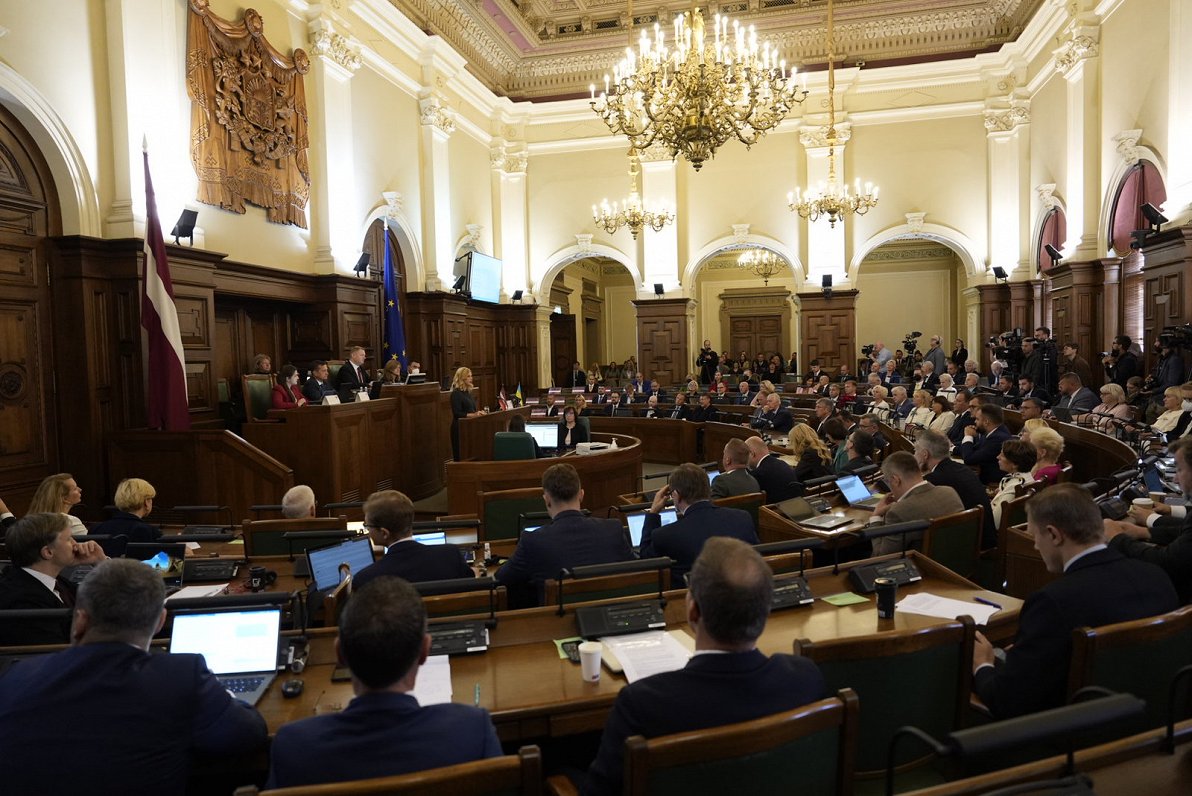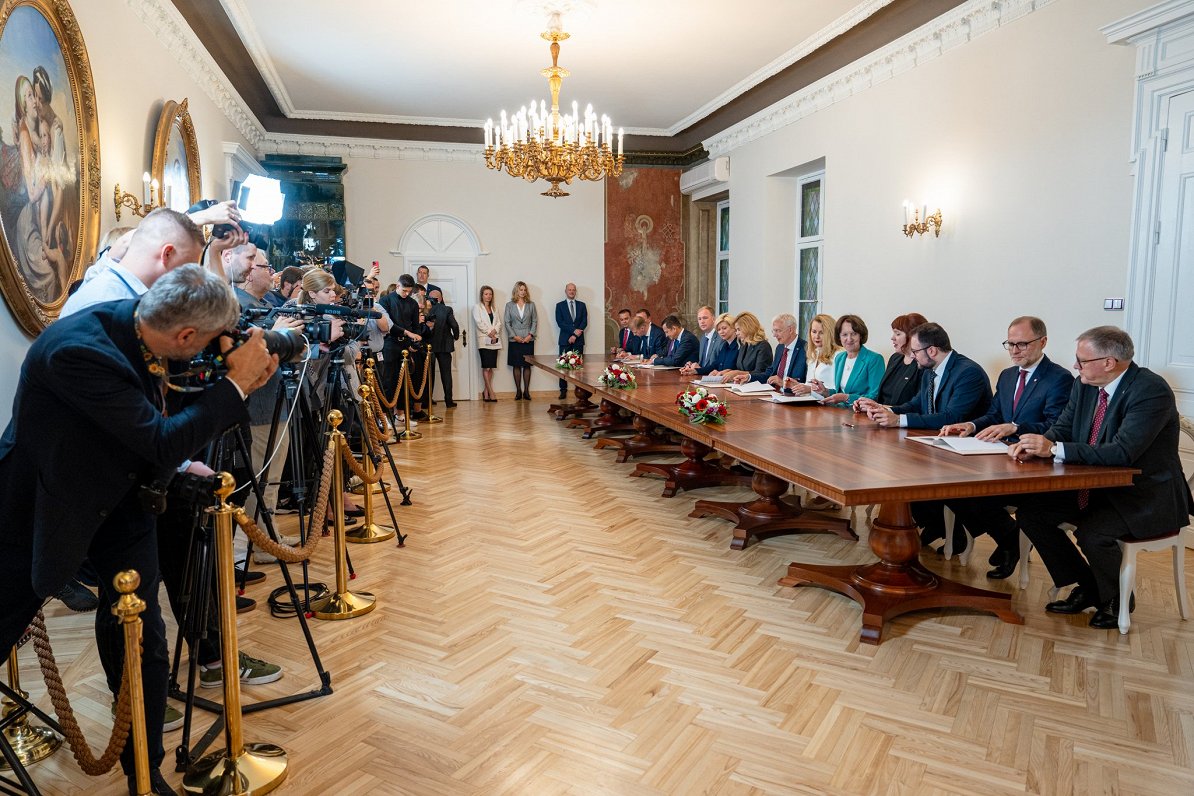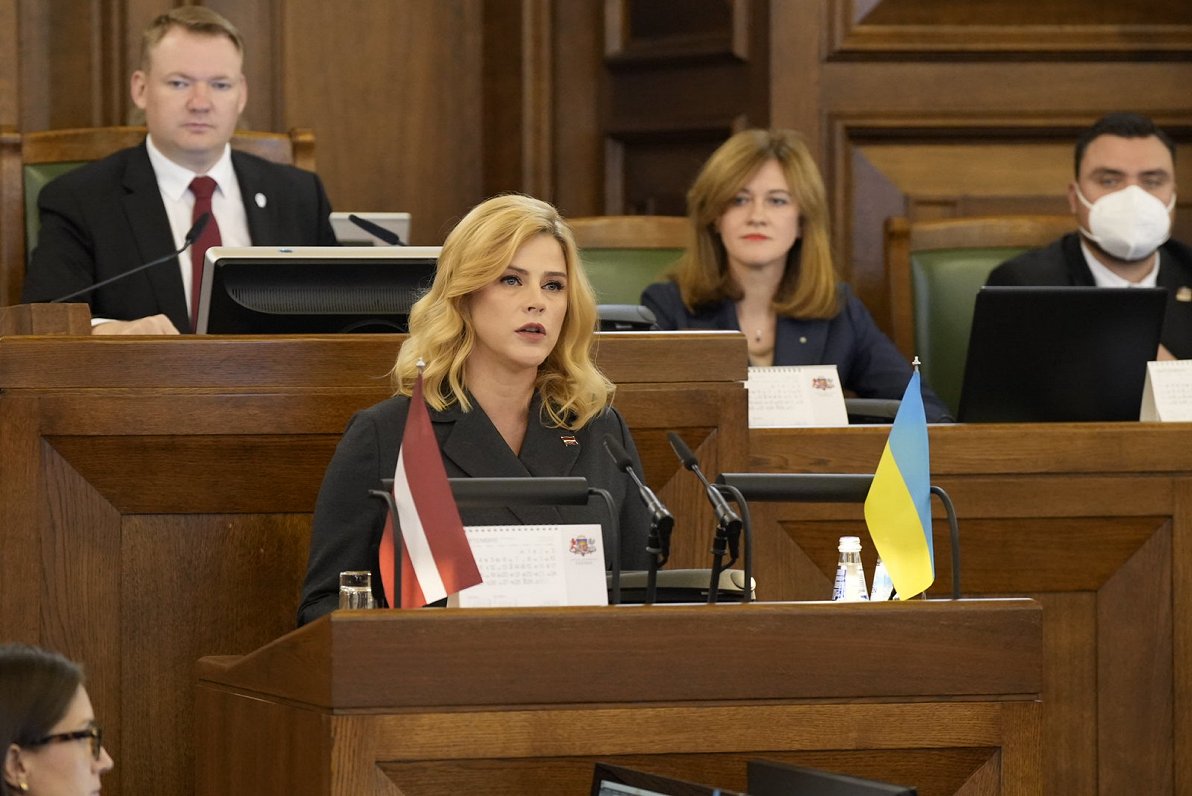Events got under way at 09:00, with the signing of a cooperation agreement between the three political parties represented in the 14th Saeima of the Republic of Latvia who form the new government: New Unity, the Greens and Farmers Union (ZZS), and the Progressives political forces.
The extraordinary session of the Saeima, where a vote of confidence in the Cabinet of Ministers formed by Siliņa, started at 10:00, and continued – with regular breaks – until just after 17:00 when the decisive vote finally took place.
As widely anticipated, the government was backed by 53 votes. 29 deputies voted against approving the government.
The new coalition directly controls 52 of 100 Saeima mandates, plus one additional vote from independent deputy Oļegs Burovs. Before the vote took place there was extensive and occasionally spicy debate.
In particular it was an opportunity for the two parties leaving government – the National Alliance and the United List – to express their frustration and criticise the manner in which the change in government has taken place. Other opposition parties such as Latvia in First Place and For Stability! offered criticism of a different kind, arguing that the new coalition will be no more effective than the old one and calling for the dissolution of the Saeima and fresh elections.

First to the speaking podium was Siliņa herself who insisted there would be no change in Latvia's Euro-Atlantic course and foreign policy and that maximum support for Ukraine would also continue. She promised to work for "a Latvia where everyone can fulfil their potential and realise their dreams" and said "ministers sitting at the cabinet table must set aside their party priorities and work for the good of Latvia."
In response, Raivis Dzintars of the National Alliance said the parties in the new coalition, and particularly New Unity, had abandoned their values in a power grab.
“These honourable colleagues have formed a no-principle coalition,” said Dzintars, describing New Unity's victory as a Pyrrhic one that had alienated many of their supporters and even raised doubts among some of their Saeima deputies.
The National Alliance and United List had stuck to their principles, he said, a theme that was immediately taken up by Edgars Tavars of the United List who pointedly referred to "Aivars Lembergs' ZZS". The United List had maintained its values while New Unity had abandoned its standards, he suggested.
For Stability!'s Aleksejs Rosļikovs mocked the incoming government alike, saying New Unity had outplayed its former partners to increase its own power and dismssing their claims of moral superiority. "That’s your price for having no backbone," he said, adding that he was "Telling you the truth that you can hear in the streets."
Another opposition deputy, Ainars Šlesers of the Latvia In First Place party used his speech principally to attack the Istanbul Convention and air greivances about a current sex education drive in schools.

On August 14 of this year, Krišjānis Kariņš announced his resignation from the post of Prime Minister, and therefore the government led by him is considered to have resigned.
The origins of the crisis that led to his resignation date back further than that, though, to the campaign to elect then-New Unity Foreign Minister Edgars Rinkēvičs in the Spring. The coalition of New Unity, the National Alliance and the United List was unable to agree on a single candidate for the Presidency and Rinkēvičs was eventually installed with votes from New Unity plus the two opposition parties, ZZS and the Progressives as relations between the ruling parties soured.
Prime Minister Kariņš then began attempts to "broaden" the coalition and increase its power in parliament by bringing ZZS and the Progressives into government, but the move was rejected by his existing partners and the end result is that the new coalition will actually have a smaller parliamentary majority than the one it replaces.
New Unity is a centrist-to-soft-right political force, the Progressives are European-style social democrats and the Greens and Farmers Union is a conservative agrarian grouping that, despite its name, no longer contains the Latvian Green Party, which is now part of the United List. ZZS has long faced criticism for its links with Aivars Lembergs, the former mayor of Ventspils who is under U.S. sanctions and is currenty serving a five-year jail term for large-scale graft.





























